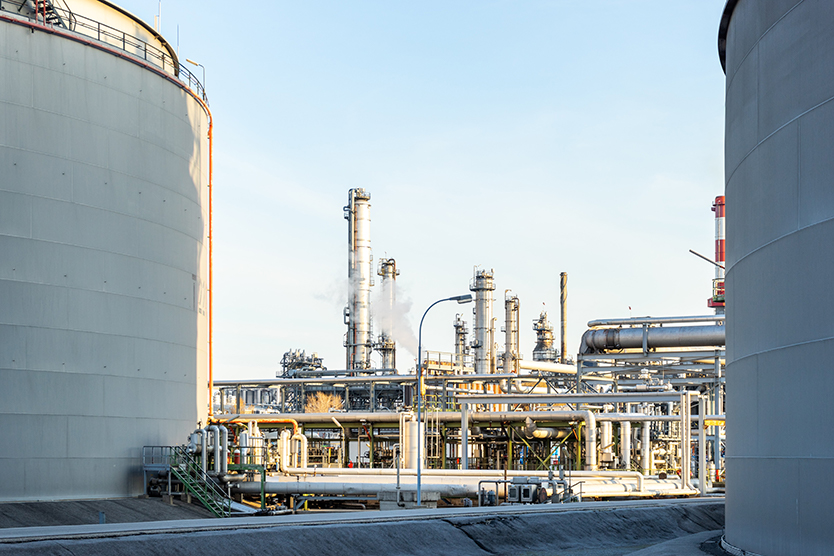
Oil refineries could be producers of green hydrogen in the future.
© Unsplash
On 1 August the first “real laboratory of the energy turnaround” to focus on hydrogen power kicked off at the Heide oil refinery in the windy northernmost region of Schleswig-Holstein. The so-called Westküste100 project brings together an alliance of 11 partners.
The vision for Westküste100 is big: it will focus on the sustainable production of green hydrogen, along with systematic research into hydrogen storage, transport and industrial applications. For this purpose an integrated 30 megawatt electrolysis system will be set up at the Heide refinery which will break water down into its elemental components: hydrogen (H2) and oxygen (O2). The energy to power the conversion process will come from local offshore wind power.
Furthermore, the CO2 emissions produced by combustion at the refinery will be captured to be used as a raw material to produce the fuel methanol. In another branch, scientists will also investigate how H2 can be optimally stored and transported underground, while another research team at the Lägerdorf cement plant will start investigating how the emissions from combustion can be reduced using oxygen.
The participating partners include EDF Deutschland, Holcim Deutschland, OGE, Ørsted, Raffinerie Heide, Stadtwerke Heide, Thyssenkrupp Industrial Solutions, H2 Westküste, and Thüga as well as the Region Heide development agency and the Westcoast University of Applied Sciences. All the activities amount to a giant field test to see how a regional hydrogen economy can work on an industrial scale to contribute to the decarbonisation of the energy system. The H2 will be used not only for heat and power locally, but also for transportation and aviation.
The Federal Ministry of Economics and Energy has pledged EUR 30 million to support the project as part of its 7th Energy Research Programme.


